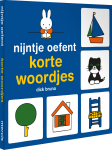Children will learn Dutch by going to school and playing with other children who speak Dutch. The more children come into contact with the Dutch language, the faster they will master the language. Besides school and friends, parents also play a role in learning a language.
Language at home: Dutch or your native language?
What language children speak at home with their parents and what the influence of that is on their language development depends on the situation and language proficiency of the parents. Good development of the native language can positively influence the learning of Dutch.
Foreign-language parents often speak in their native language at home with their children. It is certainly good to pay attention to the native language, especially when the parents themselves do not yet sufficiently master Dutch. This has a positive impact on the socio-emotional development of children because the native language is part of the identity. A well-developed native language can help with learning other skills. Moreover, it helps with learning the Dutch language. The skill in the first language is namely related to the skill in the second language. Acquired knowledge in the native language can be transferred to Dutch. Good development of the native language also promotes the general language understanding that allows children to learn a second language.
Tips for parents
Parents can help their children with learning Dutch in many different ways.
Talking, singing and reading together has a major influence on language development. Below are some language activities that parents can do with their children at home. This can be done in Dutch, but also in the native language of the parents!
- Read books aloud. Reading aloud expands the vocabulary and challenges children to think about the structure of stories.
- Have conversations about daily things and events experienced (while cooking, in the supermarket). Ask open questions: ‘What do you think is going to happen now?’, ‘What do they sell at this store?’.
- Create stories together.
- Practice writing together, for example, your own name, names of family members, what he or she experienced today, or a letter to a friend or family member.
- Talking together about the book that you read. This makes it easier to understand the story, and this contributes to the child’s cognitive development.
- Talking together about topics that interest your child. For example, about cars, animals, the playroom, school, adventures, the forest, the sea, and so forth.
- Singing songs or verses. For example, using a CD or YouTube.
- Watching Dutch-language children’s programmes together on television. Examples of Dutch children's programmes are Sesamstraat, Het Klokhuis and Jeugdjournaal.






